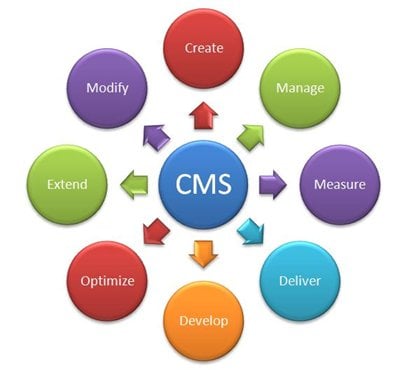Discuss the list of Content Management Systems

Content Management Systems (CMS) are software applications or platforms that enable users to create, manage, and modify digital content without requiring advanced technical skills. They are widely used for websites and other digital platforms to streamline the process of content creation and maintenance.
Here's a discussion of some popular content management systems:
-
WordPress:
- Description: WordPress is one of the most widely used CMS platforms globally. It's open-source and highly customizable, with a vast library of plugins and themes.
- Use Case: Ideal for blogs, business websites, e-commerce sites, and various other types of web applications.
-
Joomla:
- Description: Joomla is an open-source CMS that is known for its flexibility and extensibility. It has a strong user community and offers a wide range of extensions.
- Use Case: Often used for social networking sites, e-commerce websites, and corporate applications.
-
Drupal:
- Description: Drupal is a powerful, open-source CMS that is highly customizable and suitable for complex websites and applications. It is known for its flexibility and scalability.
- Use Case: Well-suited for community-based websites, government sites, and large corporate platforms.
-
Magento:
- Description: Magento is a CMS specifically designed for e-commerce. It offers a robust set of features for online stores, including catalog management, customer management, and more.
- Use Case: Ideal for businesses looking to establish and manage online stores.
-
Shopify:
- Description: Shopify is a hosted e-commerce platform that simplifies the process of setting up an online store. It's user-friendly and provides a range of customizable templates.
- Use Case: Geared towards businesses looking for a straightforward e-commerce solution.
-
Wix:
- Description: Wix is a website builder that also functions as a CMS. It is known for its drag-and-drop interface and is user-friendly for those with limited technical expertise.
- Use Case: Suitable for small businesses, personal portfolios, and simple websites.
-
Squarespace:
- Description: Squarespace is a website builder and CMS that provides visually appealing templates. It's a fully hosted solution with integrated e-commerce capabilities.
- Use Case: Popular among creative professionals, artists, and small businesses.
-
Ghost:
- Description: Ghost is a CMS specifically designed for blogging. It is lightweight, fast, and focused on creating and managing content for bloggers.
- Use Case: Best for individuals or organizations primarily focused on blogging.
-
TYPO3:
- Description: TYPO3 is an enterprise-level CMS known for its scalability and robust features. It's particularly popular in Europe and is suitable for complex web projects.
- Use Case: Often used for large-scale corporate websites and intranets.
-
Kentico:
- Description: Kentico is an integrated marketing platform that includes a content management system. It offers a wide range of features for content creation, e-commerce, and online marketing.
- Use Case: Suitable for businesses looking for an all-in-one solution for content management and marketing.
The choice of a CMS depends on the specific requirements of a project, such as the type of website, scalability needs, user-friendliness, and the level of customization desired. Each CMS has its strengths and weaknesses, so it's essential to evaluate them based on individual project goals and constraints.
Thank you.
